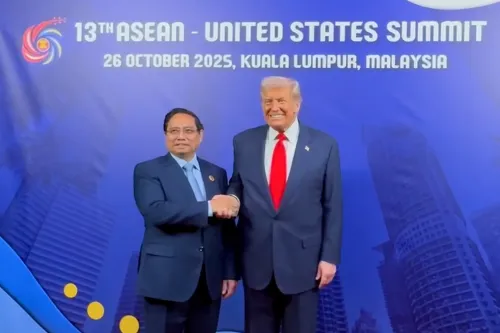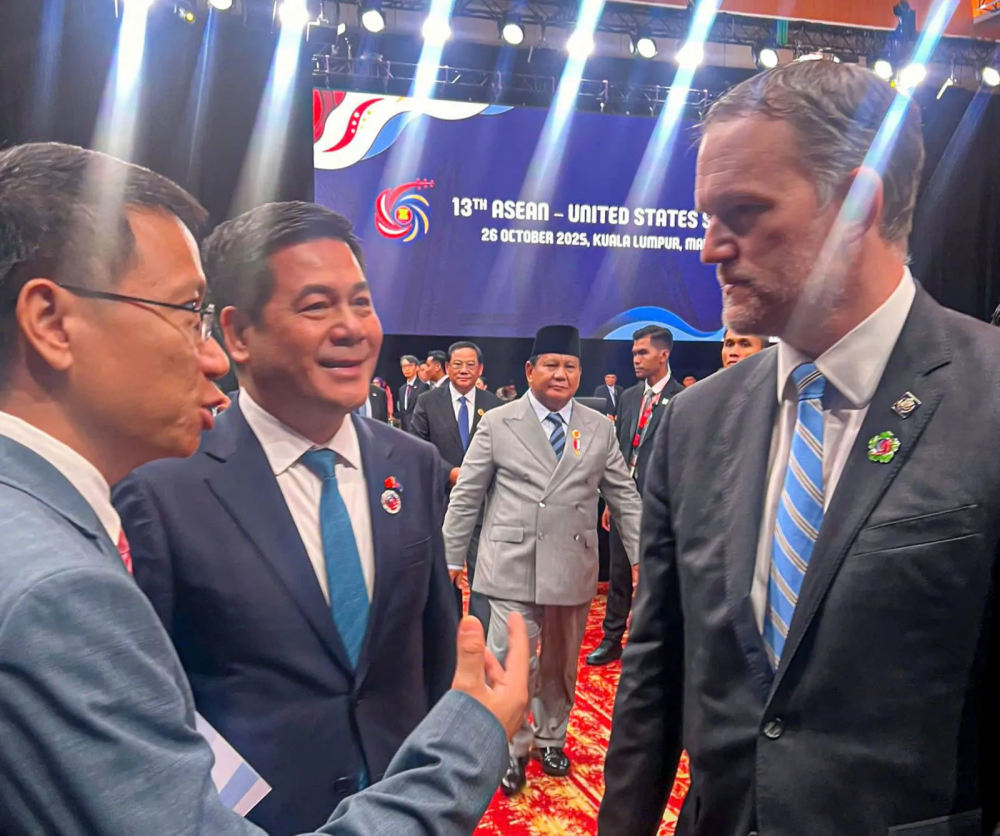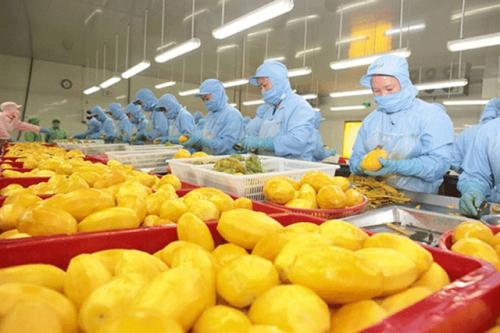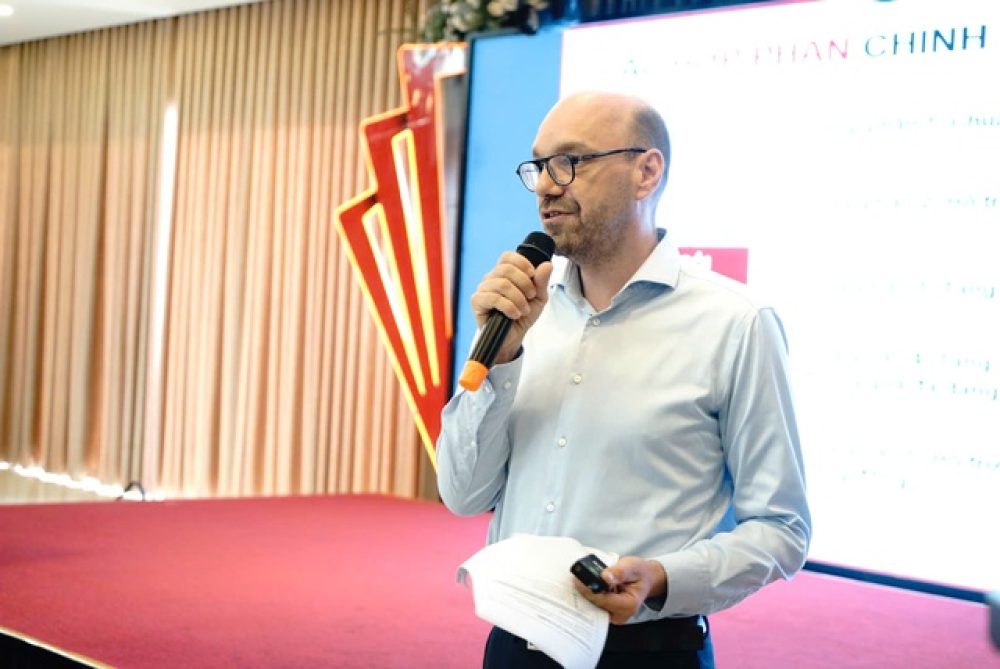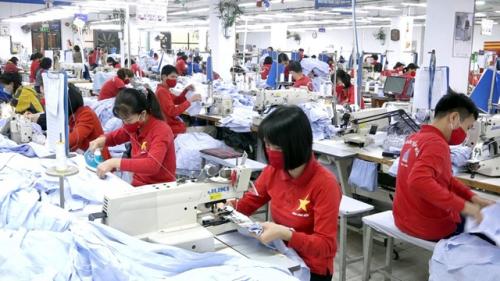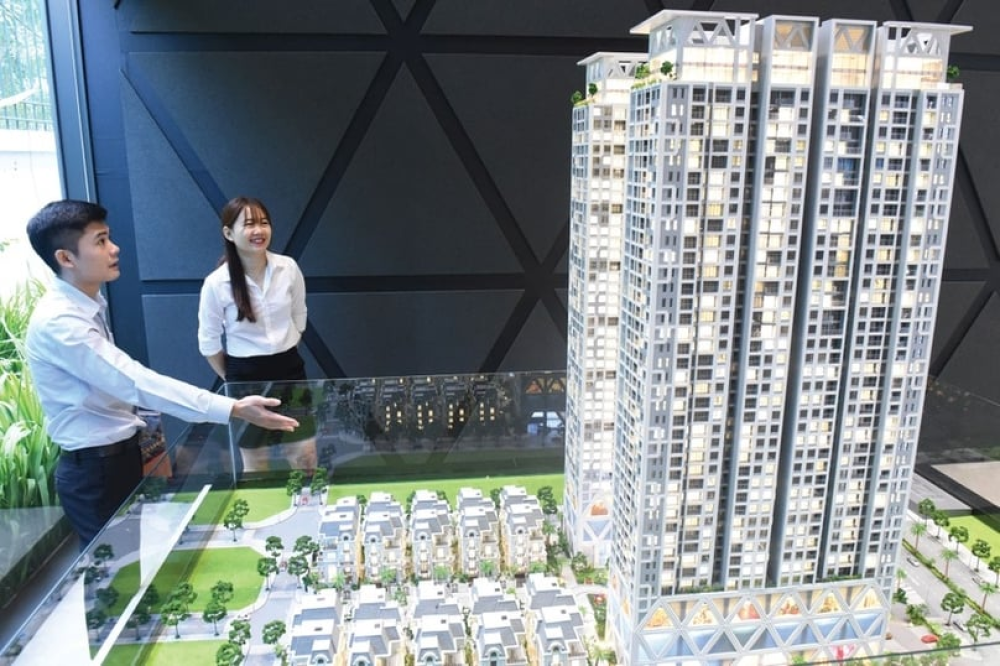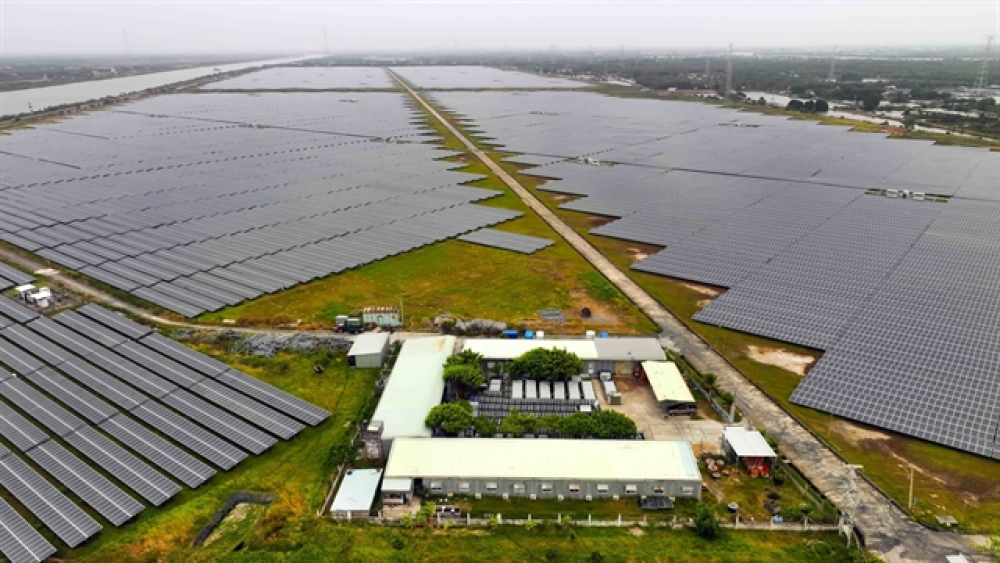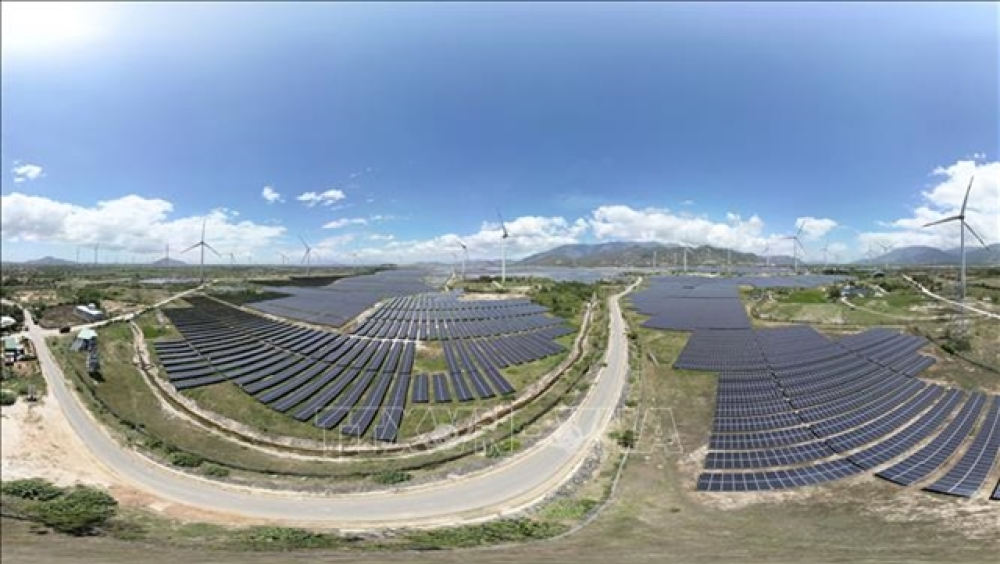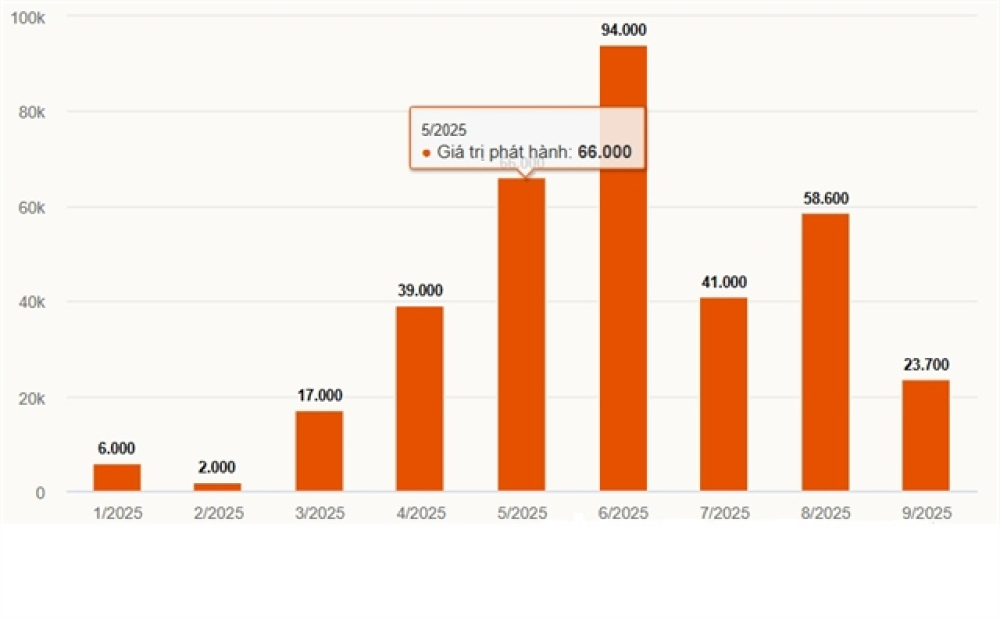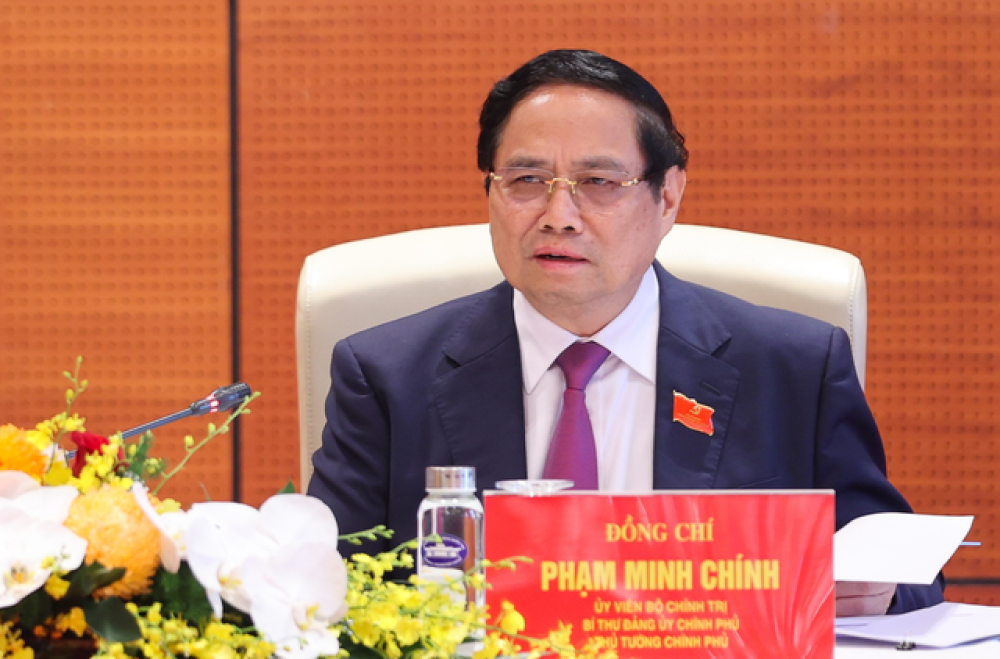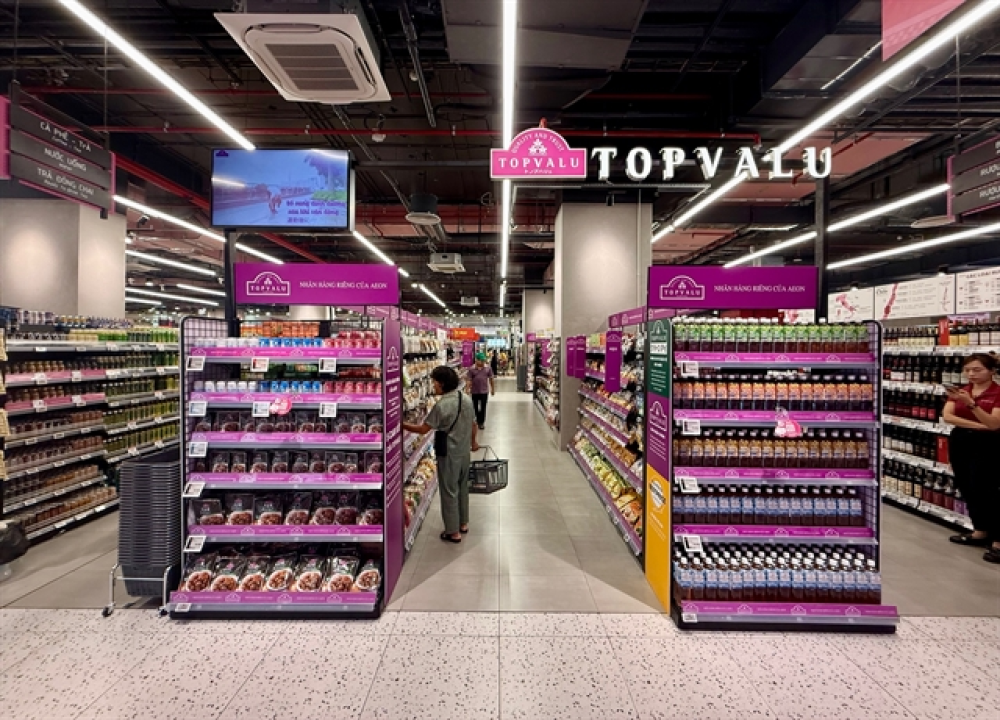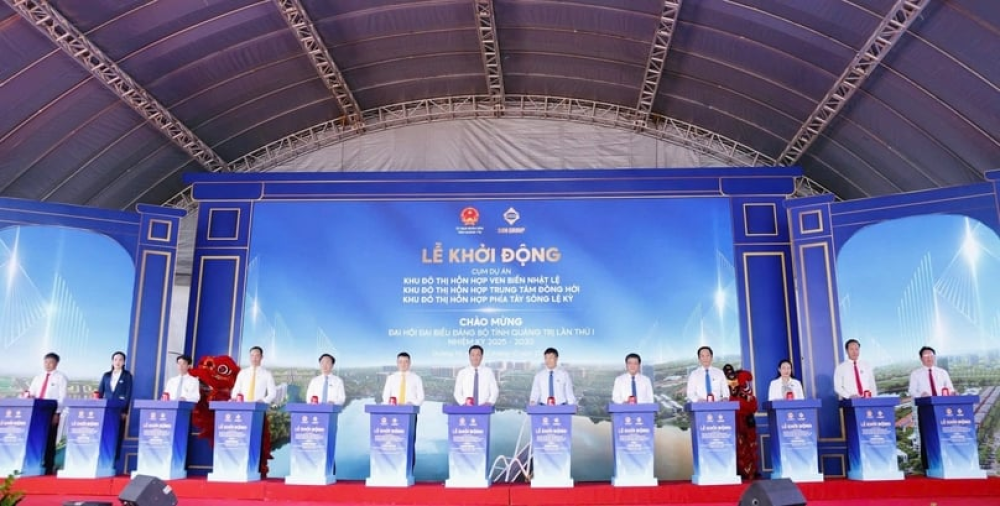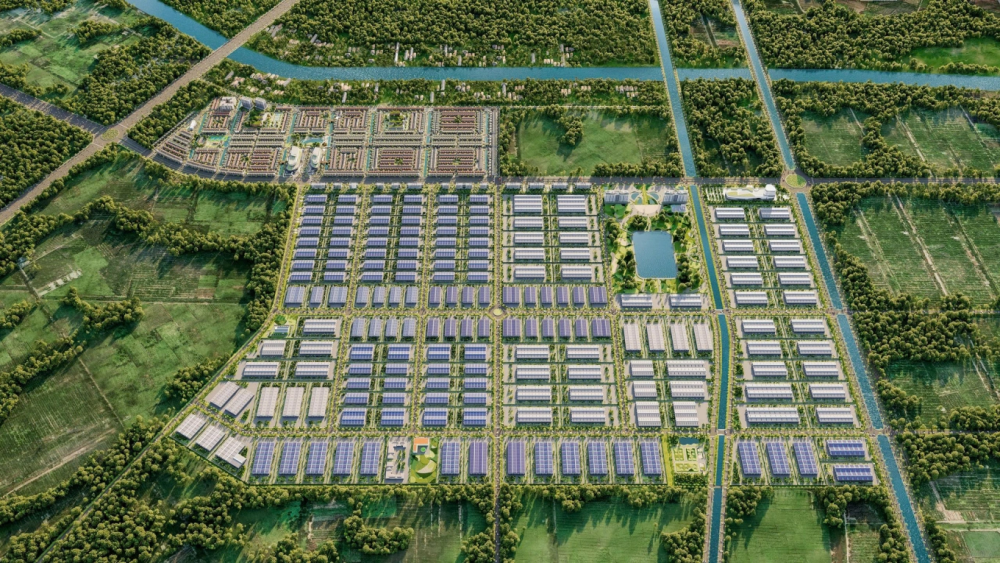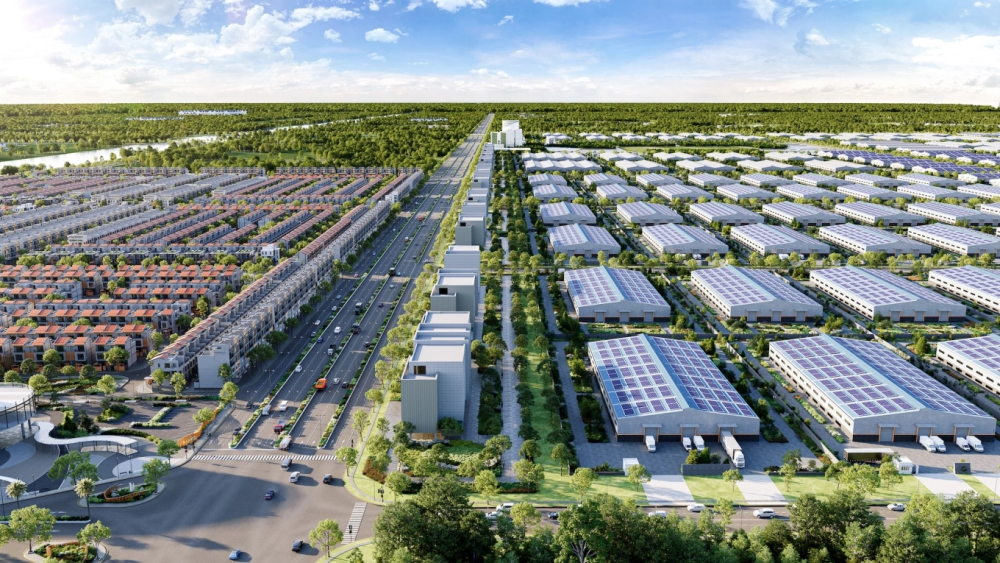The first nine months of 2025 conclude with many important achievements, while also reflecting numerous challenges that need urgent and decisive resolution in the last quarter of the year.
Vietnam's economy has traversed through the first 3 quarters of this year, with many positive indicators, while challenges remain amid prolonged global uncertainties.
UNSTABLE BUSINESS CONFIDENCE
A bright spot was business motivation and confidence in production expansion, with 231,300 new businesses newly established or resuming operations in the period.
However, on the flip side, the picture is dimmed by the exit of 175,000 businesses from the market, a 6.8% increase compared to the same period in 2024. This figure represents significant pressure on employment, supply chains, and the overall production capacity of the economy.
This duality reflects the real difficulties businesses have faced. A survey by the National Statistics Office identifies three major factors impacting business production: high domestic competition (50%), low domestic market demand (49.5%), and low global market demand (30.2%).
Notably, another survey by the Private Economic Development Research Board highlighted "difficulties in administrative procedures" as the biggest challenge, surpassing many other issues.
This situation was also reflected in the Purchasing Managers' Index (PMI) for the manufacturing sector, with the index falling below the 50-point threshold in five out of nine months, indicating contraction in production and a lack of orders. This fluctuation was evidence of unstable business confidence, weakened business resilience, and a warning that the economy may struggle to recover strongly without timely support measures.
INVESTMENT AS A KEY PILLAR BUT LACKING MOMENTUM
Investment continued to be a crucial driver, with total social investment capital in the first nine months estimated at more than VND2.7 quadrillion (more than $102.46 billion), up 11.6% compared to the same period in 2024.
Regarding public investment, the state sector accounted for 29.6% of total capital and showed the strongest growth (19.6%), affirming its pivotal role in driving growth. However, the persistent bottleneck was the slower-than-expected disbursement progress, with only 51% of the plan achieved in the nine months. This situation diminished the spillover effects of this capital on related economic sectors.
Non-state investment: This sector holds the largest share (53.3%) but increased by 7.8% only, much lower than the pre-pandemic period. This indicated the private sector's caution due to fragile business confidence and high capital costs. However, the potential for private investment breakthroughs remains significant, especially in digital technology, renewable energy, and high-tech agriculture, if unlocked by substantial institutional reform and a genuine business environment.
Foreign direct investment (FDI): The FDI sector maintains a positive trend, with implemented capital increasing by 11.2%. However, a significant warning arises as the average registered capital per new project declines over the three quarters, from $5.09 million/project in Q1 2025 to $4.23 million/project after nine months. This trend suggests that capital may be shifting towards smaller, dispersed projects, reflecting investor caution and competitive pressure in attracting strategic projects.
WEAK DOMESTIC DRIVERS, EXPORTS AS A PILLAR
Domestic consumption, accounting for over 60% of GDP, has not recovered as expected. Total retail sales of goods and consumer service revenue in the nine months increased by 7.2% only (with price factors excluded), significantly lower than the government's target of 10-12%.
Behind such a low increase are slow income growth, weak consumer confidence, and a trend of tightening spending. To unlock this crucial driver, demand-stimulating policies, consumer credit facilitation, and especially stabilizing the real estate market to reduce financial burdens on people are essential.
Meanwhile, foreign trade was a standout bright spot. Total import-export turnover in the nine months reached $680.6 billion, up 17.32%.
Exports increased by 16%, reaching $348.7 billion, despite the weakening global trade context. A highlight was the strong recovery of the agricultural product group. Fruits and vegetables have been estimated at $6.11 billion, while coffee surged with a turnover of $7 billion (up 62.2% in value).
This success is a valuable lesson in shifting towards deep processing, brand building, and meeting green standards. However, exports still heavily rely on the FDI sector and the electronics and computer group, posing the risk of a "processing trap" as domestic value-added remains low.
Imports increased faster than exports (18.8%), reaching $331.9 billion, mainly production materials (accounting for 93.8%), serving production and export. As a result, the trade surplus reduced to $16.8 billion from the figure of $21.32 billion in the same period in 2024. The import picture both shows the vitality of production and serves as a "test" for the self-reliance strategy when the economy still heavily depends on imported raw materials and components.
INSTITUTIONAL REFORM: THE KEY TO UNLOCKING NEW GROWTH POTENTIAL
Institutional reform plays a foundational role in long-term growth. In the first nine months of 2025, the determination to remove "institutional bottlenecks" has become a consistent action mandate within the Party and the State. This is not just routine governance but a strategic step to restructure the economy on a modern legal and market foundation.
Institutional reform and business environment improvement continue to be central to economic management. Major decisions from the Party, the National Assembly, to the Government have created significant changes: streamlined administrative procedures, more transparent legal frameworks, and gradually recovering business confidence.
This is the foundation for expecting growth momentum in the coming period. A series of resolutions, amended laws, and management policies have focused on removing barriers, from the Land Law, the Law on Credit Institutions to cutting procedures and business conditions.
The government is determined to accelerate administrative reform, reduce compliance costs for businesses, promote online public services, and connect national databases. As a result, the business environment has seen positive changes: new business registrations have increased again, costs and procedure times have decreased, and market confidence has recovered. Institutional reform has been more substantive, becoming a growth driver, but it needs to continue to accelerate progress and quality to meet new development requirements.
MACROECONOMIC STABILITY, PROACTIVE INFLATION CONTROL
In the first nine months of 2025, the economy maintained macroeconomic stability, providing a foundation for economic growth in the last months of the year. The average CPI in the nine months increased by 3.27%, and core inflation increased by 3.19%, within the target range. Exchange rates, the monetary market, and the trade balance maintained stability with a high trade surplus, creating resources to strengthen foreign exchange reserves. This result is due to the flexible management of monetary and fiscal policies, domestic supply recovery, and sustainable trade surplus.
The average CPI in the nine months only increased by 3.27%, but macro indicators warn of the risk of inflation surging at the end of the year. Money supply and credit are growing rapidly, interest rates remain low, exchange rates are under pressure, and input costs are rising, creating a price-pushing spiral. If not acted upon promptly, inflation will erode purchasing power and weaken macroeconomic stability.
Credit injected into the economy is high, but allocation is not appropriate. In the first nine months of 2025, credit reached VND17.71 quadrillion (more than $672.3 billion), up 13.37%, and is forecasted to increase by 19-20% this year. Notably, the trade and service sector attracted the largest portion of the total credit in the nine-month period, accounting for nearly 70%; capital injected into the industrial and construction sector was nearly 24%, and the agriculture, forestry, and fishery sector was about 6.23%. By the end of August 2025, real estate business credit reached VND4 quadrillion (more than $151.8 billion), up 19% compared to the same period in 2024.
Current credit allocation warns of three risks: phase mismatch in capital allocation; demand-pull inflation and asset bubbles; weakening the foundation for long-term growth.
The trade and service sector can quickly turn over capital but is also prone to speculation and short-term credit risks. Meanwhile, industry and construction - sectors that create long-term production capacity - account for less than 1/4 of the total credit, signaling an imbalance in capital direction for sustainable growth. When credit for manufacturing and processing industries is limited, the economy lacks investment capital for technological innovation, productivity improvement, and production capacity expansion.
Excessive capital flow into trade and services can stimulate short-term consumer demand, putting pressure on goods and service prices. At the same time, a significant portion of credit in this sector can easily deviate towards real estate and securities, inflating speculative channels and creating asset bubbles, weakening the long-term industrialization foundation, causing risks, and slowing down economic restructuring.
SOME CONTRADICTORY MOVEMENTS, PHASE MISMATCH IN THE ECONOMY
The economic picture of the first nine months of 2025 shows contradictory movements, phase mismatches between sectors, industries, and growth drivers, reflecting an uneven recovery state and lack of synergy.
Many new businesses are established, but many others also exit, reflecting the contradictory nature of the business sector with dynamism but lack of stability; flexibility but lack of depth, weak financial resilience.
Credit - an important growth driver - also shows signs of phase mismatch between economic sectors when "prioritizing fast-turnover sectors." This phase mismatch is further evidenced in the first nine months of 2025, with 145,000 new businesses established, of which 111,300 businesses, accounting for 76.7%, belong to the trade and service sector. The material production sector - the foundation for enhancing production capacity and exports - has not been adequately supported. Credit expanded but did not go to the right address.
Public investment, the expected growth-driving pillar, has only disbursed 51% of the plan, continuing to be a "bottleneck," not strongly promoting total demand recovery. When public investment disbursement is slow, the private sector finds it difficult to expand investment, creating a phase mismatch between policy and market.
To overcome the phase mismatch of the economy, we need to adjust the growth structure, instead of focusing only on short-term speed.
First, accelerate public investment to stimulate total demand, create spillover effects for production, construction, and supporting industries. Along with that, adjust the credit flow, encourage commercial banks to allocate capital for the manufacturing, processing, high-tech agriculture sectors, and long-term investment projects with significant spillover effects.
In the medium term, policies must aim to strengthen the economy's independence, autonomy, and sustainability. Improve policy consistency, reduce administrative intervention in economic management, and give businesses greater autonomy.
Quickly complete the institutional framework to unlock non-state investment, remove legal bottlenecks on land, credit, public investment, and digital transformation.
When the growth pillars: production, investment, consumption, and exports operate in sync, Vietnam's economy will not only recover faster but also be more resilient to external fluctuations in 2026 and beyond.
The nine months conclude with many important achievements, while also reflecting numerous challenges that need urgent and decisive resolution in the last quarter of 2025. Inflation pressure, exchange rates, phase mismatch in credit structure, and rising input costs require steadfast, flexible, and synchronized policy management. If these short-term risks are well controlled, Vietnam can fully turn difficulties into opportunities, strengthen the macroeconomic foundation, and open up prospects for higher, more sustainable growth in 2026 and beyond.
